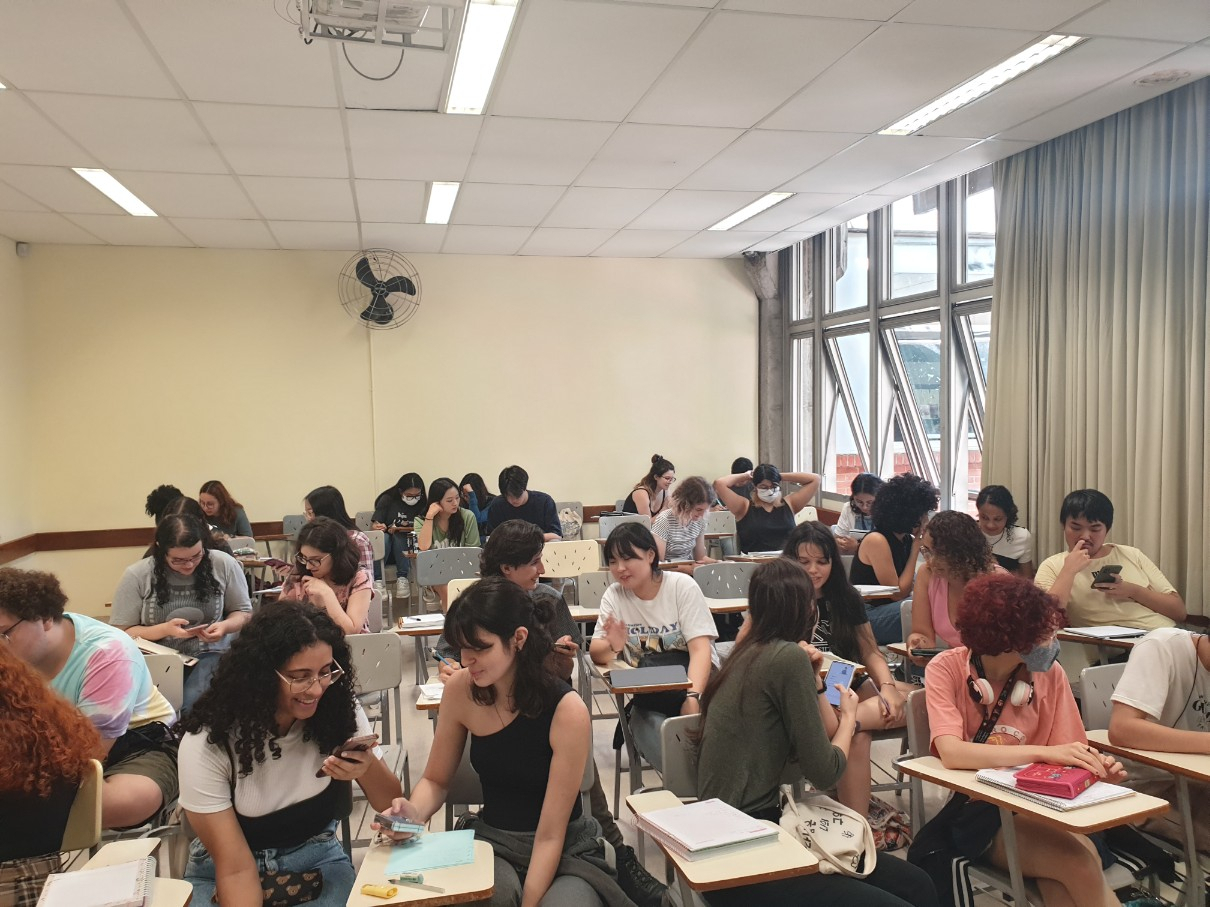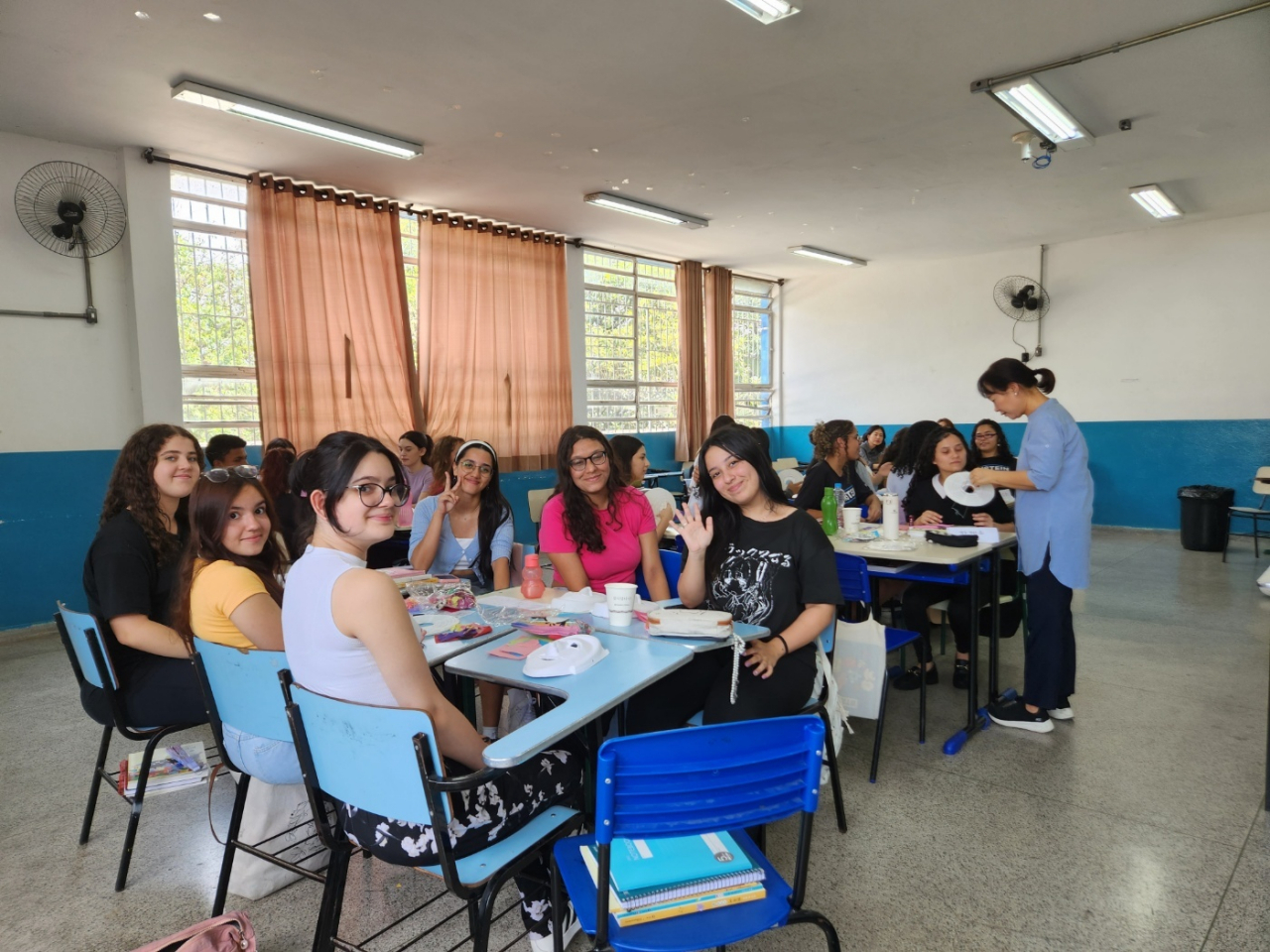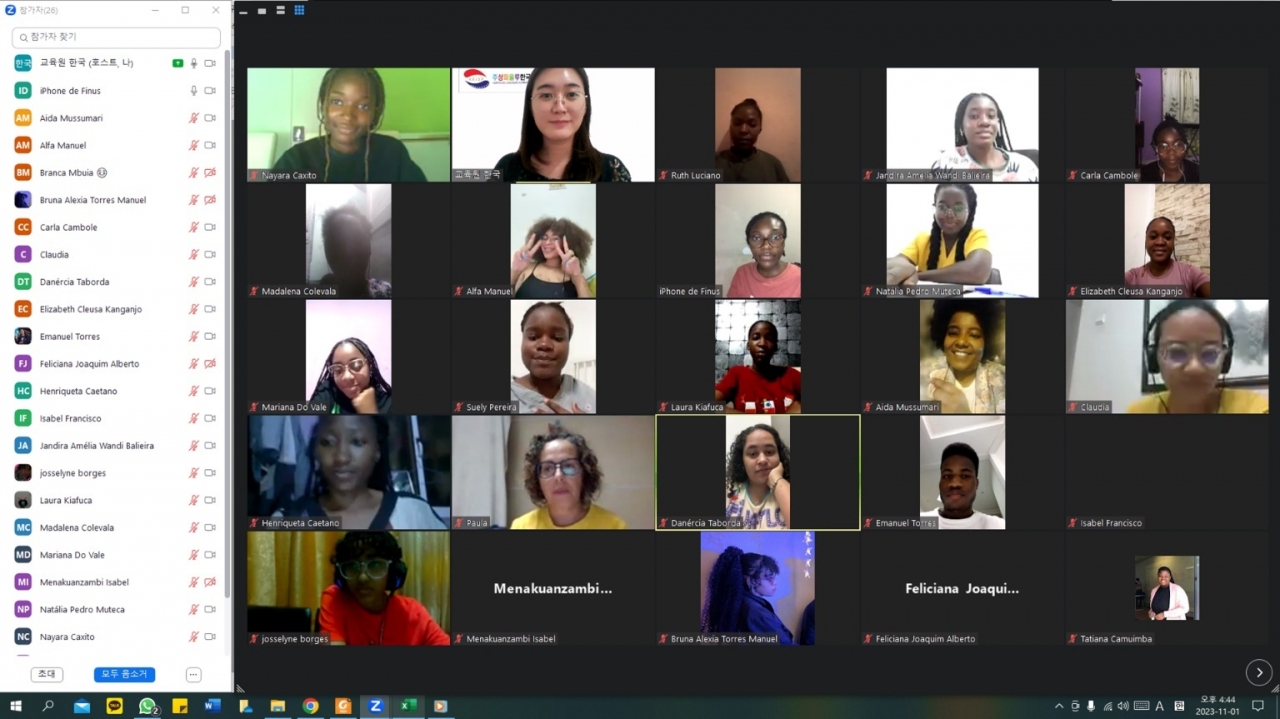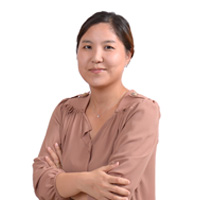[Korea Beyond Korea] In Sao Paulo, horizons expand for Korean studies
Brazil rises as promising hub for Korean language and literature education in wider Portuguese-speaking world
By Lee Sun-youngPublished : Nov. 20, 2023 - 16:25
SAO PAULO -- Separated by oceans and a 12-hour time difference, Seoul and Sao Paulo lack direct flight connections and speak distinct languages.
Yet, in this metropolis of over 11 million, the largest in the southern hemisphere, K-dramas are finding their way into ordinary Brazilian homes, and K-pop acts are captivating youth, gradually making the language spoken in the distant Asian nation more familiar to the local population.
The University of Sao Paulo stands tall amid this newfound interest in Korean. As the first institution in South America to establish a dedicated program for Korean language and literature studies in 2013, it is now experiencing a surge in demand that is putting strain on teaching capacity.
"In this semester's introductory Korean class ('Korean Language 1'), we have 50 students registered, many of whom are not Korean majors," shared professor Kim Ji-yun, one of the two faculty members teaching in the Korean program, during a conversation at a cafe just outside the USP campus in Brazil’s largest city. The following level, "Korean Language 2," in the university's Korean language course, has attracted 37 students.
“Back in 2017, when I first joined USP, these classes typically had around 10 students,” she recalled.

In another indication of the Korean language’s rise here, students applying to major in Korean last year had the highest average grades, out of seven possible choices under the USP’s Department of Oriental Languages and Literatures, Kim shared.
At USP, students choose their major after completing their first year of general humanities study, and their choice is determined by their academic performance.
Currently, there are 104 undergraduates majoring in Korean, after the quota of students per year was lifted to 25, from the previous 20.
Aside from the pressing need to increase the number of faculty members commensurate with the expanded enrollment, USP’s 10-year-old Korean program finds itself at a critical juncture, particularly concerning the career paths of its graduates.
“How our graduates carve out their place in society with their Korean skills and knowledge will serve as an important barometer for the future standing of the department,” the professor said.
Student Bruna de Carvalho Giglio, in her senior year, has a pretty clear sense of what she wants, with an eye on pursuing a master’s or doctoral degree.
“In the future, I want to do scientific research on common misunderstandings, or errors, made by Portuguese native speakers when they first learn Korean,” she said.
Having always been interested in languages that seemed unfamiliar to her, Giglio discovered Hangeul at around 13 or 14 years of age.
“I was intrigued by the power and potential of Hangeul, and how it can be adapted as a writing system for many other languages,” she said, referring to the Korean alphabet created by the 15th-century King Sejong with an aim to help improve literacy among ordinary people.
Literary translation is another path Giglio is interested in. She is the co-host of a podcast titled "Sarangbang" on Korean literature, the first such program launched in Brazil with a focus on Korean literary works.
Asked to name some of her favorite Korean authors or books so far, she mentioned, among others, acclaimed Korean children’s book author and illustrator Baek Hee-na. “Some of her books have been translated and published here.”

Lencia Squisatti Silva, another student in her senior year, described her connection with the Korean language as a destined journey that unfolded through her friend's enthusiasm for K-pop and her aunt's fervent admiration of Korean actor Lee Min-ho in K-dramas.
Her bond with Korea deepened significantly during the unforgettable autumn semester of 2022 at Korea’s Dankuk University.
She described how she liked Daegu in particular, although it is not known as a tourist destination, out of the many places she explored in Korea.
“I really liked the people there. They were so kind. Even the dialect they spoke was kind of cute,” she said.
Now, she aspires to shape her career around Korean -- perhaps by working at a Korean company or pursuing a Korean language teaching position after advancing her studies.
Expanding footing in Brazil
Interest in the Korean language is growing particularly among teens. But rarely is the language taught in schools here.
The Korean Education Institute in Sao Paulo, under the auspices of the Korean Education Ministry in Seoul, is working to change that, encouraging Brazil’s educational authorities to incorporate Korean in their school curricula.
“The Brazilian education system greatly differs from that of Korea and education of secondary languages is often offered at a community level, rarely at the school level," said KEISP director Shin Il-ju, explaining her agency’s efforts to work closely with municipal or provincial authorities.
As of now, a total of 1,054 students from 104 schools in Brazil are learning Korean in 42 classes. Fifteen of the classes are conducted online. Students from different schools join together to learn Korean in these classes.
At ETEC Alberto Einstein School in Sao Paulo, Raquel Cardoso Araujo and Lara Buratin learn basic Korean grammar and vocabulary twice a week, along with some 20 other students.

When this reporter visited, the class had organized a special activity day.
With a BTS tune playing in the background, the students carefully folded "hanji," traditional Korean paper, to make masks and other crafts.
Araujo said, before joining the class, she had tried teaching herself Korean out of curiosity stemming from her interest in K-pop and K-dramas.
“I am interested in period dramas in particular. I like 'hanbok' (Korean traditional clothing) and the food,” she said.
Her classmate Buratin had also picked up some Korean words from watching K-dramas before taking the class. She shared her dream of someday contributing to bringing the two countries closer.
The school’s director, Joao Eduardo, said many students are drawn to studying Korean not only out of interest in the culture but also due to Korea's renowned reputation in technology, being home to global tech companies.
“There are many places that offer English classes, but it’s only here where students can learn Korean from a native Korean teacher,” he said in an interview.
One of the Albert Einstein students has been invited by the Korean government to participate in a youth camp in the country, he added, showing interest in scholarship and exchange program opportunities.
This past October, the KEISP signed an agreement with Sao Paulo’s regional education authorities, paving the way for an expanded offering of Korean classes for teens in the region.
“It marks the inclusion of Korean as the seventh language to be offered at regional education centers in Sao Paulo,” KEISP director Shin said. The existing six are English, Spanish, French, German, Italian and Japanese.
Following a trial run this semester, starting from the next school year, the city’s unified language education centers will provide Korean classes for students from nearby areas.
Simultaneously, the KEISP is investing in cultivating a pool of local teachers. Currently, Korean immigrants or Koreans residing in the country make up the majority of the teaching staff in Brazil.
The first effort to expand the teacher pool is taking place at USP, where 17 aspiring Korean language teachers are taking a nine-month online program, exploring ways to meet the specific learning needs of Brazilians or Portuguese speaking learners.
“Enrollees have diverse backgrounds. Some are graduates of USP’s Korean program, while others include offspring of Korean immigrants in Brazil, Brazilians who are currently studying in Korea or had studied in Korea and are now back in Brazil,” said USP professor Kim, who is in charge of the online program.
The program focuses on practical teaching skills, particularly in areas where Portuguese-speaking Brazilian learners have particular difficulty when learning Korean, Kim added.
Hub for Portuguese-speaking world
Portuguese boasts 230 million native speakers -- the language with the fifth-highest number of native speakers in the world. Brazil leads with the greatest number of native speakers, followed by eight other countries, including Portugal, Angola and several others.
Officials hope that the seeds planted in Sao Paulo now will grow to bridge not just Korea and Brazil but also the broader Portuguese-speaking world.
At present, English often acts as the connecting language in classrooms, when interpreting and in various other fields. Efforts are underway to establish more direct connections between Korean and Portuguese.
USP student Silva said, “Textbooks and materials are either in Korean or English. To learn Korean, you have to know English.”
Professor Kim shared that experts and academia are currently working to develop the first, university-level, regular Korean-Portuguese, Portuguese-Korean interpretation course. “Right now, there's no such course available in Korea or Brazil,” she said.
For beginners learning Korean, there are textbooks specifically tailored for Portuguese speakers, and the Seoul government-led textbook localization project is anticipated to introduce additional resources in the future, the KEISP’s Shin explained.
Teachers in Brazil are already stepping up to meet Korean learning needs in Angola, in southern Africa, where the main spoken language is also Portuguese.
Teacher Yoon Seyi meets her Angolan students virtually for a total of four hours per week. At times, poor internet connections cause some glitches and the class size is large, making it challenging to ensure quality teaching. But the students’ enthusiasm persists, she said.
“My class has 35 students in it who are mostly in their late teens and early 20s,” Yoon said. “Almost all are familiar with K-pop and K-dramas.”

Another class, conducted by a different teacher, has 40 students registered in it, the teacher added.
In Angola, the surge of interest in Korean culture has sparked a desire for Korean language learning, but teaching capacity is limited. The sole institution providing Korean education is the Luanda Korean School, established in 2019, according to related officials.
"Korean Studies Beyond Korea” explores the current landscape of Korean studies through interviews, in-depth analyses and on-the-ground stories told from diverse world areas. Funded by the Korea Press Foundation, this series delves into the challenges and opportunities facing the field as Korea's rise as a cultural powerhouse has drawn interest from scholars, researchers and leaders from around the globe. – Ed.



















![[Today’s K-pop] Treasure to publish magazine for debut anniversary](http://res.heraldm.com/phpwas/restmb_idxmake.php?idx=642&simg=/content/image/2024/07/26/20240726050551_0.jpg&u=)